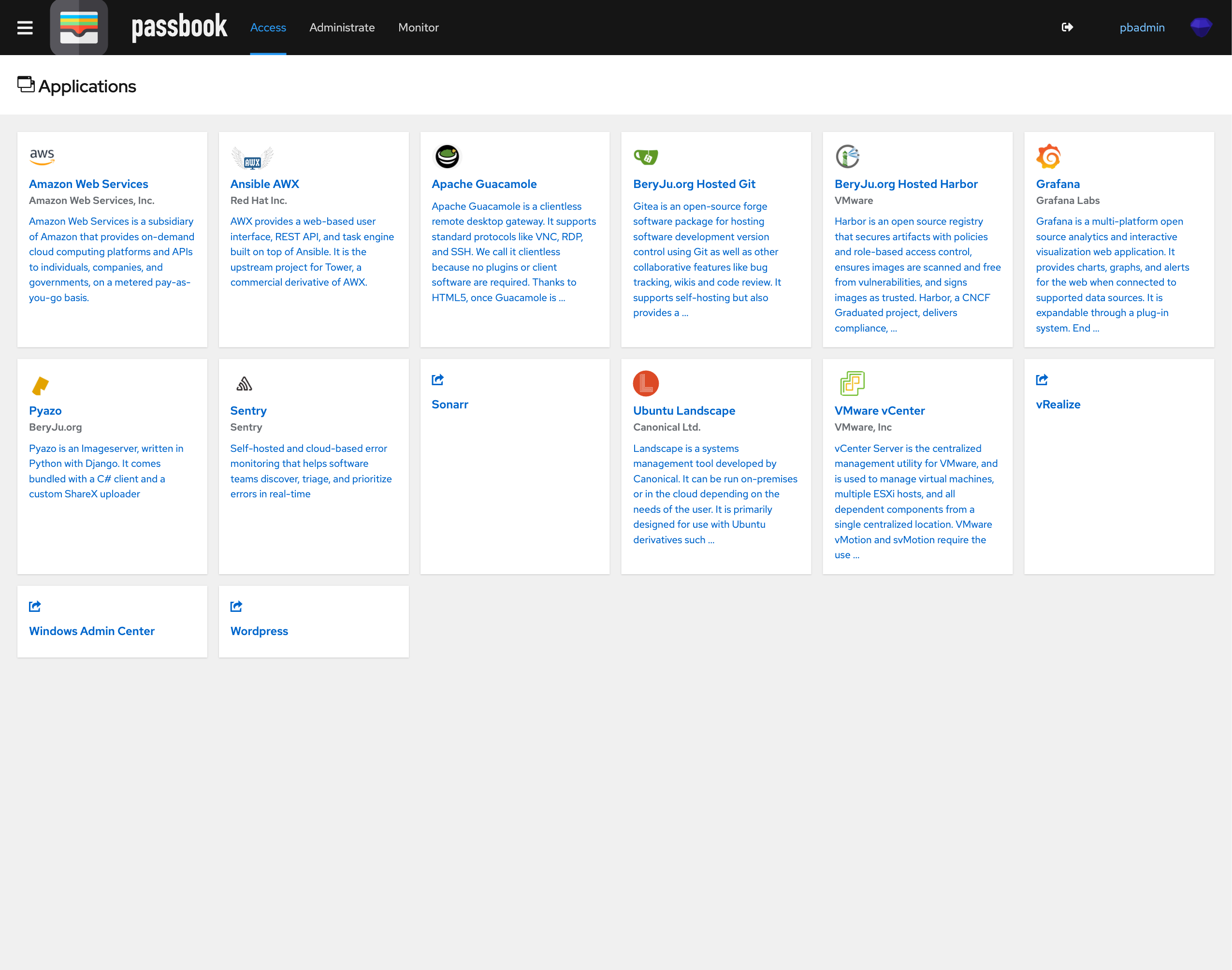<img src="docs/images/logo.svg" height="50" alt="passbook logo"><img src="docs/images/brand_inverted.svg" height="50" alt="passbook"> [](https://dev.azure.com/beryjuorg/passbook/_build?definitionId=1)  [](https://codecov.io/gh/BeryJu/passbook)    ## What is passbook? passbook is an open-source Identity Provider focused on flexibility and versatility. You can use passbook in an existing environment to add support for new protocols. passbook is also a great solution for implementing signup/recovery/etc in your application, so you don't have to deal with it. ## Installation For small/test setups it is recommended to use docker-compose, see the [documentation](https://passbook.beryju.org/installation/docker-compose/) For bigger setups, there is a Helm Chart in the `helm/` directory. This is documented [here](https://passbook.beryju.org//installation/kubernetes/) ## Screenshots   ## Development To develop on passbook, you need a system with Python 3.7+ (3.8 is recommended). passbook uses [pipenv](https://pipenv.pypa.io/en/latest/) for managing dependencies. To get started, run ``` python3 -m pip install pipenv git clone https://github.com/BeryJu/passbook.git cd passbook pipenv shell pipenv sync -d ``` Since passbook uses PostgreSQL-specific fields, you also need a local PostgreSQL instance to develop. passbook also uses redis for caching and message queueing. For these databases you can use [Postgres.app](https://postgresapp.com/) and [Redis.app](https://jpadilla.github.io/redisapp/) on macOS or use it the docker-compose file in `scripts/docker-compose.yml`. To tell passbook about these databases, create a file in the project root called `local.env.yml` with the following contents: ```yaml debug: true postgresql: user: postgres log_level: debug ``` ## Security See [SECURITY.md](SECURITY.md)